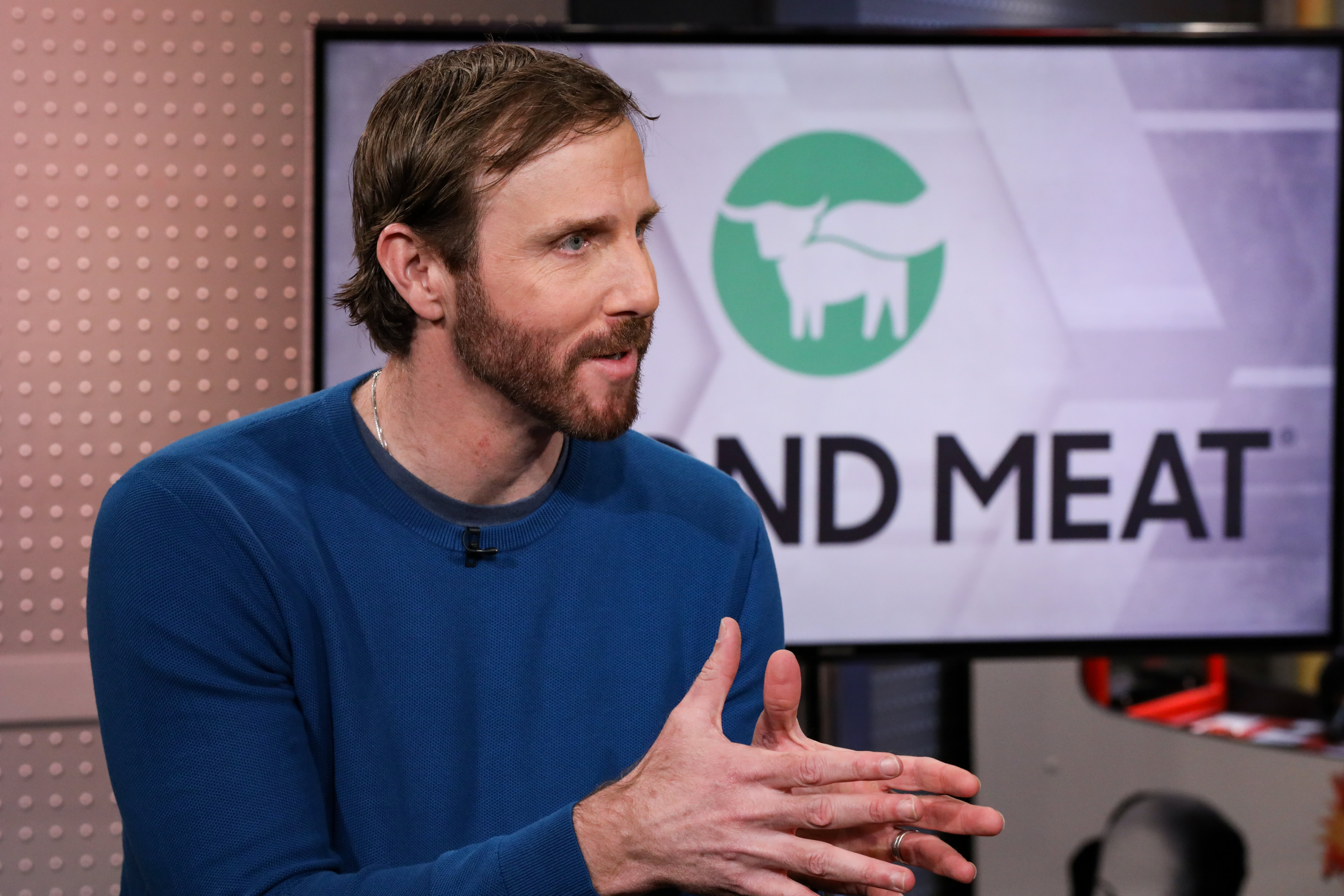Beyond Meat posted better-than-expected earnings for the first quarter Tuesday but warned that it saw a drop in sales at the end of March as the coronavirus pandemic shuttered restaurants around the country.
Given the uncertainty regarding restaurant sales, the company withdrew its earnings forecast for the year.
“I am proud of our first-quarter financial results, which exceeded our expectations despite an increasingly challenging operating environment due to the Covid-19 health crisis,” CEO Ethan Brown said in a statement.
Shares of the company rose about 5% in after-hours trading.
The company reported a net income of $1.8 million, or 3 cents per share, compared with a net loss of $6.6 million, or 95 cents per share, a year ago.
Revenue soared 141% to $97.1 million, from a year ago, and outpaced analyst expectations of $88.3 million, according to a Refinitiv survey.
The company said its adjusted earnings before interest, taxes, depreciation and amortization was $12.7 million. A year ago, the company recorded an adjusted EBITDA loss of $2.1 million.
Beyond Meat said it expects to continue to benefit from consumers eating at home, but “the magnitude and duration of the impact to the foodservice channel, in particular,” has caused it to pull its 2020 forecast.
Sales to restaurants and food service outlets made up about 42% of Beyond’s revenue in the quarter. That’s a drop from 59% of total revenue in the previous quarter.
Sales at its U.S. food service channel rose 156% to $22.6 million in the first quarter, while sales grew 57% to $18.6 million in the international food service business.
The company has taken steps to ensure its liquidity as it prepares to weather any disruption to business due to Covid-19. As of March 28, the company had about $246.4 million in cash on hand, it said, and outstanding debt of about $30.6 million. On April 22, the company announced it entered into a new $150 million revolving credit facility.
“We maintained our solid top-line momentum while driving our best-ever performance in production unit cost per pound,” CFO Mark Nelson said. “Despite near-term challenges ahead stemming from the ongoing global health crisis, our improving operating results and continued strength of our balance sheet give us added confidence about the Company’s long-term financial position.”
Ahead of earnings, Beyond Meat announced plans Tuesday to capitalize on potential meat supply chain issues as some U.S. meat plants become sites for coronavirus outbreaks. Beyond told Reuters it plans to offer large value packs and discounts to some U.S. retailers this summer, hoping to grab a larger share of the market as prices for beef rise due to Covid-19-related production disruptions.
Shares of Tyson Foods were hammered Monday after it reported disruptions to production due to coronavirus-hit profits.
Tyson executives said U.S. hog processing capacity has been nearly cut in half as the coronavirus closes slaughterhouses, pressuring profits. Pork accounts for about 12% of Tyson’s sales. Like Tyson, JBS and Smithfield have also temporarily shuttered plants as outbreaks overwhelm their workforce.
Beyond said it will seek to fill any gaps in supermarket supply chains with its value packs and greater-than-normal discounts aimed at narrowing the price gap between Beyond’s plant-based burgers and beef, which analysts have said could be a hurdle to widespread adoption of Beyond’s burgers.
Beyond will face competition as it seeks to capitalize on the opportunity.
Earlier Tuesday, plant-based meat competitor Impossible Foods announced plans to start selling its burgers in supermarket chain Kroger. Kroger, which also operates Fred Meyer, King Soopers, Ralphs and other stores, will sell the vegan burgers online as well for curbside pickup and delivery, starting Tuesday.
Impossible Foods said the Kroger rollout represents an 18-fold increase in the company’s retail footprint this year. It hopes to expand its retail footprint 50-fold this year, it said.
Prices for beef shipped to wholesale buyers have climbed to record highs as the coronavirus reduces production, even as restaurants in some states seek to reopen.
Beyond’s plant-based meat has typically sold for much more than beef. During the first quarter, Beyond’s ground beef and beef patty alternatives were priced at around double and triple the price per pound of traditional ground beef, according to Wells Fargo.
